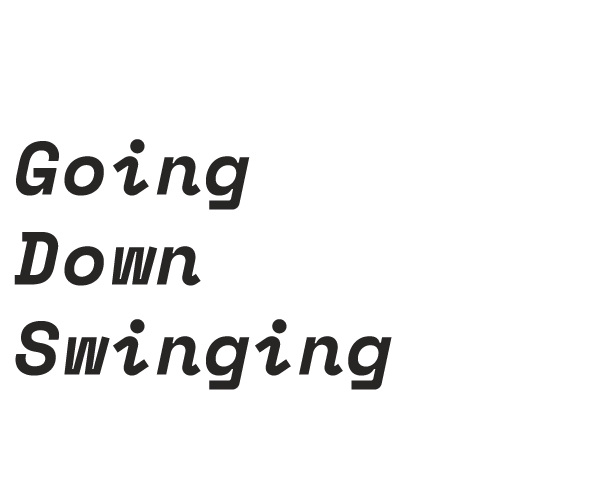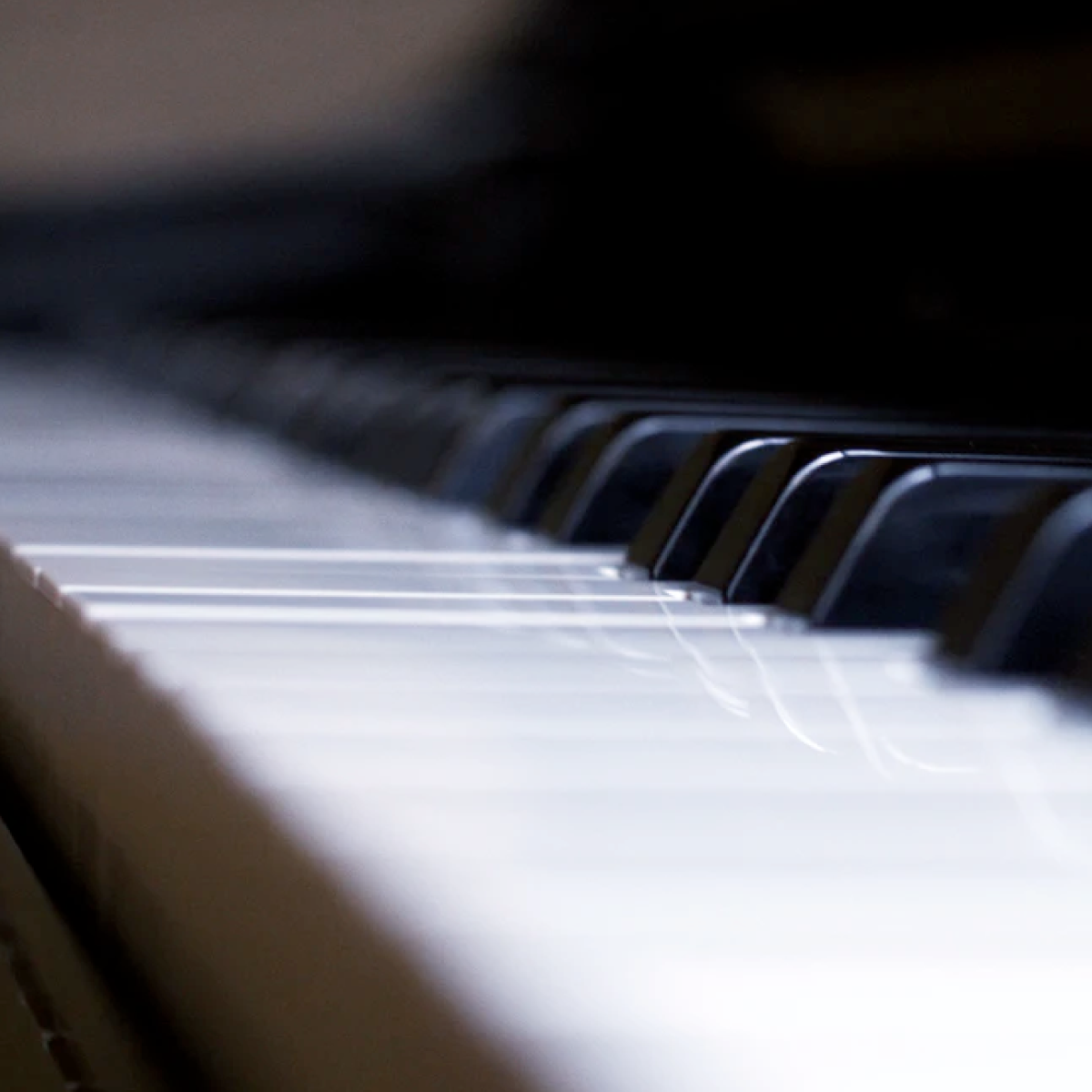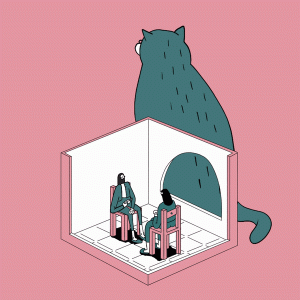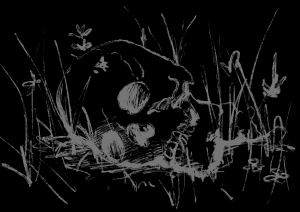Transcript
Impromptu
for Voice and Piano
All my life I’ve been a performer. Even before I was born, I was listening to music through the walls of my mother’s womb, played on the radio on full volume. I liked including that story in my profile; it made a nice touch to a concert program otherwise filled with details of old dead people and their music, and the stories of child prodigies who had been inexplicably born with a sense of rhythm and pitch. Instead, my talent was the product of careful nurturing, like a pear coaxed to grow within a bottle, kept in the best conditions.
I used to enjoy performing, like I’m doing for you now, when I was only aware of it in the most superficial sense. Really, I performed to be admired, and somehow my tiny brain knew this without quite understanding it. My brother Dennis, who was six years older, was my first unconscious target. Although he’d been playing for six years when I started and he was a fairly bright kid, he was a slacker when it came to practising. I worked hard and overtook him in six months. It wasn’t the thought of surpassing him that drove me so much as the thought of what people would think of me: a four-year-old who could play like a ten-year-old but had learned to do so in one-tenth of the time. I enjoyed being called upon to perform for family friends, watching their mouths drop then snap into tight, envious smiles when they realised how little they had achieved when they were four, or when my parents compared my progress to my brother’s while he slunk away to his room.
All of this sounds well and fine, but that was because I was an unknowing fraud then; I hadn’t realised the truth yet, how good a fraud I was. It became a lot more interesting later on when I was twelve, during the last of many recitals. In a quiet part of the piece, like now, a thought struck me, and I stopped. I wasn’t lost or scared or anything, but the shock of it was enough to make me lose the will to continue. I bowed, to confused applause, and was shuffled off to music therapy.
The psychologist I saw was a nice woman in her thirties who liked a good cardigan. I liked how she didn’t begin with all the stage anxiety stuff, which was what she probably did with her other adolescent clients. Instead, she just asked, “What was going on in your thought-space in that moment?” I’d never been asked about this before, what you’re listening to right now as I’m playing this, improvising. The question was a little too direct and I didn’t trust her enough yet, so I answered, “Nothing. I didn’t feel a thing.”
“You don’t feel the music,” my first teacher had sighed, and my parents cast worried glances at each other. I was eight, preparing for my debut, and they were more anxious than I was. I scratched my arm, shuffled my feet, and waited for my teacher to continue. “You need to open your heart, think about what feeling you can bring out through the music. What should you be feeling here?” and he played a few bars with arms flowing in time to the music.
I remained silent.
“Freedom,” my father suggested.
“Freedom,” I replied.
“Then play it that way. Like birds, flying.” And I did; I copied my teacher’s lifted brows, the archings of his arms, his tilted nod on the downbeat. My thought-space was filled not with the image of birds in flight, but with how I could better imitate his motions and convince the others that I was playing freedom. And it worked – my teacher patted me on the head and said, “much better,” and we moved on.
That was when I learned that performance was an act of double-fraud: I had to convince people of an emotion or idea, and I had to convince them that I was convincing them of it; that the emotion came from within me, and the performance liberated it. And then I committed an act of triple-fraud by convincing myself that all this was true and nothing unusual and forgot all about it.
That moment during the concert, it struck me. What was I really performing? I had convinced myself that every feeling I performed came from my memories and experiences, and they were what made my performance unique. The audience seemed to think so as well. But what was I doing, except feigning an emotion? The real emotion wasn’t in my performance; it was embedded within the piece, in the frantic double-octave scale runs that Liszt wrote, in the sharp and stinging chromatic passages that chafed my fingers. I was not performing my own emotion, but Liszt’s. Anyone with enough skill could do it. And so even though my performance might differ slightly to another performer’s, the music – the feeling – would essentially sound the same. I was a fraud in lying to myself and the audience that I was giving them something unique. After all, I was only a performer. I would have made an even better one if I’d kept going, content in my own fraudulence.
I didn’t try explaining any of this to the psychologist. She probably hadn’t made it as a performer or had given up before she could understand. She advised that I “get to know my thought-space” by recording myself thinking and playing, and “collect more varied experiences” through trying new things like gardening. I never went back after that.
I turned to composition for a bit to see if I could make something that was truly mine, but there really was no point – everything I wrote was derivative of what I’d played before, patterns I borrowed from other pieces to convey some specific emotion. Even these notes you’re hearing, seemingly drawn from the well of my subconscious – they’re just more patterns, only too deep down for us to know. After a while, I stopped playing altogether. It was the only music I could play without feeling like a performer, a fraud. Let me play some for you now.
A brief note on the music
‘Impromptu’ is an exploration of the fraudulence ingrained in classical music performance. I wanted the score to reflect and reinforce this in its composition and interactions with the vocal text.
The score is original and sounds improvisatory but is not an improvisation. It was composed using the twelve-tone serialist technique, which involves the strict ordering and manipulation of a row of non-repeating pitches (an excerpt is attached below). Character-wise, it differs from traditional Western Classical music in its atonality, rhythmic variety and non-linear growth. The sound used was also digitally generated rather than recorded from an acoustic performance.



